 Writing a recipe is harder than it looks. I found this out when a children’s magazine editor asked me to add a recipe to my article about eating insects. First, I thumbed through my recipe file mentally substituting bugs for a vital ingredient. Mushrooms stuffed with millipedes was out. (Most kids don’t like mushrooms.) I nixed beetle sausage, also. (Too much chopping and frying in a hot skillet.) Flipping to desserts, I chose toffee. I could substitute bugs for nuts. After my trip to the grocery store for butter, sugar and chocolate chips, I visited the pet shop, and asked for a cup of mealworms, which are fly larvae (also known as maggots, but that’s not very appetizing). The man handed me a little carton that looked like a Skippy cup of ice cream. I wrote that down because I would need to pass that information on to readers who, like me, had no clue how to purchase creepy-crawlies. With all the ingredients on the counter I recorded each step:
After that, I was on familiar ground blending butter and sugar, and sprinkling chocolate chips. I called my concoction Toffee Surprise, and taste-tested it in a large group setting where peer pressure encouraged full participation -- my mother’s birthday party! The verdict: The toffee was yummy, crunchy, and sweet with a subtle earthy aftertaste. Although I don’t plan on cooking more edible vermin, I did learn some important rules for writing a recipe: Choose a food that is reader-friendly; be aware of your readers’ abilities and safety issues; record every step in order; pay attention to even the smallest details; and prepare it yourself so you can work out the bugs (no pun intended).  Peggy Thomas is the co-author of Anatomy of Nonfiction, the only writer's guide for children's nonfiction. To find out more about Peggy, visit her website. She also has a blog for writers, based on the book. Peggy Thomas is a member of iNK's Authors on Call and is available for classroom programs through FieldTripZoom, a terrific technology that requires only a computer, wifi, and a webcam. Click here to find out more. MLA 8 Citation
Thomas, Peggy. “How to Take an Elephant’s Temperature.” Nonfiction Minute, iNK Think Tank, 7 Nov. 2017, www.nonfictionminute.org/baking-with-bugs;-how-to-write-a-recipe.
0 Comments
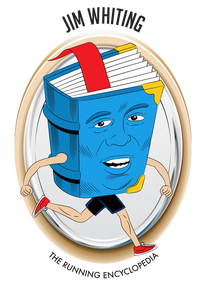 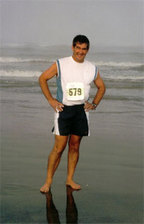 Bill Mills at the beach Bill Mills at the beach Billy Mills was just a face in the crowd of nearly 30 runners at the 10,000-meter run at the 1964 Olympic Games in Tokyo, Japan. His best time was nearly a minute slower than the race favorites. Part-Lakota Sioux Indian, Mills was a scrawny kid, who had grown up in poverty and racial bias. Whites regarded him as an Indian. Indians sneered that he was part-white and therefore not one of them. His father had encouraged the boy to envision a better life: “You have to look deeper, way below the anger, the hurt, the hate, the jealousy, the self-pity, way down deeper where the dreams lie, son. Find your dream.” Mills began finding his dream when he discovered his talent for running. He earned an athletic scholarship to the University of Kansas. Then he qualified for the U.S. Olympic team. Still, no one expected anything of him. He asked for shoes from the company that outfitted American runners. Sorry, he was told. We only give shoes to potential medalists. You don’t qualify. Mills kept a diary. Six weeks before the 10,000 meter race, he wrote “I’m in great shape….I’m ready for a 28:25 [twenty-eight minutes, twenty-five seconds].” He had never run that fast. Nor had any American. Nor anyone in any previous Olympics. The gun sounded. As each of the 25 laps rolled by, more and more runners fell off the pace. At the start of the final lap, Mills was one of three runners still in contention. As they rounded the first turn, Australian Ron Clarke shoved Mills out into the third lane. Mohamed Gammoudi of Tunisia took advantage of the opening and pushed his way between the other two, knocking Mills off balance for a moment. As the runners headed down the final straight, television cameras showed a tight battle between Gammoudi and Clarke. Mills was nowhere to be seen. Suddenly the television announcer screamed “Look at Mills! Look at Mills!” Mills bounded back into the picture, passing Clarke and then Gammoudi almost as if they were standing still. He maintained his pace to the finish line, five yards ahead of Gammoudi and ten in front of Clarke. His time of 28 minutes, 24.4 seconds was virtually identical to what he had visualized. He remains the only American to win the 10,000 meters at the Olympics. Mills crossing the finish line in the 1964 Olympics. Watch Mills run the final lap 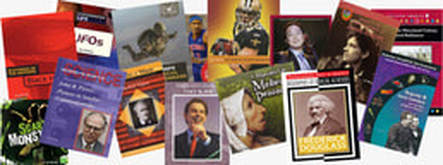 Jim Whiting is a walking encyclopedia. He has written more than 180 (count 'em!) books on many subjects. You can learn more about him here. MLA 8 Citation Whiting, Jim. "No Shoes for You." Nonfiction Minute, iNK Think Tank, 21 Sept. 2017, www.nonfictionminute.org/the-nonfiction-minute/no-shoes-for-you.  Every fall, the smell of popcorn and hot dogs fills the air as fans make their way into stadiums to cheer for the home team. Football is such a big part of our world that it is hard to imagine life in America without the sport. But in 1905, football was nearly cancelled—forever. By the end of the year, nineteen boys had died as a result of playing football. Because of these deaths and the many injuries that occurred during the season, Columbia University in New York City decided they would no longer have a football team. Other colleges considered banning their football teams too. At the time, Teddy Roosevelt was President of the United States. He was a football fan and believed young Americans should live a “strenuous life” filled with hard work and physical activity. President Roosevelt did not want America to lose football, but he also understood the game needed to be less brutal that it was. So he called a meeting between the coaches of Harvard, Yale and Princeton on October 9, 1905. The coaches joined Roosevelt at the White House to discuss how to make football safer. As the season drew to a close, the future of football was still in question. In December Walter Camp, the man who invented American football, led a group called the Intercollegiate Rules Committee to make rule changes. As part of the changes, the Committee wanted officials to enforce rules against kneeing, kicking and punching on the field. For the first time football would include a forward pass. They also changed the distance it would take for a first down—it had been five yards, but the new rules changed it to ten yards. The rule changes of 1905 are still part of football today, and so is Walter Camp’s Committee. Today it is known as the National Collegiate Athletic Association (NCAA) which still governs the rules of college football. 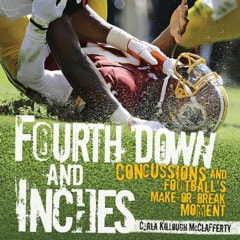 Did you know that football was almost banned in 1905 because nineteen players were dead and countless others injures? Carla McClafferty has written a book that balances the love of America’s most popular spectator sport with a hard look at its costs for players. This is a must read for players and coaches. Carla McClafferty is a member of iNK's Authors on Call and is available for classroom programs through Field Trip Zoom, a terrific technology that requires only a computer, wifi, and a webcam. Click here to find out more. MLA 8 Citation
McClafferty, Carla Killough. "The Near-Death Experience of Football." Nonfiction Minute`, iNK Think Tank, 1 Feb. 2018, www.nonfictionminute.org/the-nonfiction-minute/ the-near-death-experience-of-football.  Think you might like to be a helicopter pilot? If so, here’s what the U.S. Flight Aptitude Selection Test for helicopter pilots says: “Helicopter pilots must pass some of the most demanding physical tests of any job in the military. To be accepted for pilot training, applicants must have excellent vision and be in top physical condition. They must have very good eye-hand-foot coordination and have quick reflexes.” A sense of balance is also extremely important because sometimes instruments alone are not enough to keep a helicopter oriented properly in the air. Pilots may have to make very subtle corrections. So here’s a test for balance. Be forewarned. Not many people can do this, maybe one in twenty. 1. Stand at attention. 2. Make two fists and extend your arms straight down by your sides. Point your index fingers to the ground. 3. Close your eyes. 4. Bend one leg back at the knee so that your lower leg is parallel to the floor and you are standing on one foot. Don’t let your foot droop. You must maintain your knee at a right angle. 5. Keep your eyes closed and hold this position for ninety seconds. 6. Try not to shake. I learned about this from a Scotsman who told me about this test to qualify for the British Royal Air Force. He couldn't pass it, nor could I. In fact, no one I knew could rise to the helicopter pilot challenge except a Navy pilot in my family. He held the position perfectly for two minutes. Solid like a rock. No problem. It’s clear that when it comes to certain skills not everyone is equal. Some people are not even close. So very few people are in the running to become helicopter pilots. You're probably not one of them but this may change with training. 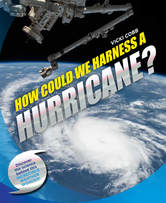 Vicki Cobb is a former science teacher with a M.A. in secondary school science. She is also the founder and president of iNK Think Tank, the group that is producing The Nonfiction Minute. Thanks, Vicki! Check out How Could We Harness a Hurricane?. To find out more about this book and other books that Vicki has written, click here. Vicki Cobb is a member of iNK's Authors on Call and is available for classroom programs through Field Trip Zoom, a terrific technology that requires only a computer, wifi, and a webcam. Click here to find out more. MLA 8 CItation
Cobb, Vicki. "Take the Helicopter Pilot Challenge." Nonfiction Minute, iNK Think Tank, 4 Jan. 2018, www.nonfictionminute.org/ Take-the-Helicopter-Pilot-Challenge. |
*NEWS
|
For Vicki Cobb's BLOG (nonfiction book reviews, info on education, more), click here: Vicki's Blog
The NCSS-CBC Notable Social Studies Committee is pleased to inform you
that 30 People Who Changed the World has been selected for Notable Social Studies Trade Books for Young People 2018, a cooperative project of the National Council for the Social Studies (NCSS) & the Children’s Book Council
Categories
All
Abolitionists
Adams Janus
Adaptation
Adaptations
Adkins Jan
Advertising
Aerodynamics
Africa
African American History
African Americans
Africa West
Agriculture
Aircraft
Air Pilots
Air Pressure
Air Travel
Albee Sarah
Alchemy
Alligators
Allusion
American History
American Icons
Amphibians
Amundsen Roald
Anatomy
Ancient
Ancient Cultures
Anderson Marian 1897-1993
Animal Behavior
Animal Experimentation
Animal Intelligence
Animals
Animation
Antarctica
Ants
Apache Indians
Apes
April Fool's Day
Architecture
Argument
Arithmetic
Art
Art Deco
Artists
Arts
Asia
Astronauts
Astronomy
Athletes
Atomic Theory
Audubon Societies
Authors
Autobiography
Automobiles
Aviation
Awards
Bacteria
Baseball
Battuta Ibn
Bears
Beatles
Beavers
Bees
Biodegradation
Biography
Biology
Biomes
Biomimicry
Biplanes
Birds
Black Death
Black History
Blindness
Blizzards
Bombs
Bonaparte Napoleon
Boone Daniel
Botany
Brazil
Bridges
Brill Marlene Targ
Brooklyn Bridge
Brown John
Buffaloes
Building Materials
Butterflies
Caesar
Caesar Julius
Caissons
Calculus
Calendars
Cannibal
Capitals
Caravaggio
Carbon Dioxide
Carnivores
Carson Mary Kay
Cartoons & Comics
Carving (Decorative Arts)
Cascade Range
Castaldo Nancy
Castles
Castrovilla Selene
Cathedrals
Cats
Caves
Celts
Cemeteries
Chemistry
Children's Authors
Child Welfare
China
Choctaw Indians
Christmas
Chronometers
Cicadas
Cinco De Mayo
Ciphers
Circle
Citizenship
Civil Rights
Civil Rights Movements
Civil War
Civil War - US
Climate
Climate Change
Clocks And Watches
Clouds
Cobb Vicki
COBOL (Computer Language)
Code And Cipher Stories
Collard III Sneed B.
Collectors And Collecting
Color
Commerce
Communication
Competition
Compilers
Composers
Computers
Congressional Gold Medal
Consitution
Contests
Contraltos
Coolidge Calvin
Cooling
Corms
Corn
Counterfeiters
Covid-19
Crocodiles
Cryptography
Culture
Darwin Charles
Declaration Of Independence
Decomposition
Decompression Sickness
Deep-sea Animals
Deer
De Medici Catherine
Design
Detectives
Dickens Charles
Disasters
Discrimination
Diseases
Disney Walt
DNA
Dogs
Dollar
Dolphins
Douglass Frederick 1818-1895
Droughts
Dr. Suess
Dunphy Madeleine
Ear
Earth
Earthquakes
Ecology
Economics
Ecosystem
Edison Thomas A
Education
Egypt
Eiffel-gustave-18321923
Eiffel-tower
Einstein-albert
Elephants
Elk
Emancipationproclamation
Endangered Species
Endangered-species
Energy
Engineering
England
Englishlanguage-arts
Entomology
Environmental-protection
Environmental-science
Equinox
Erie-canal
Etymology
Europe
European-history
Evolution
Experiments
Explorers
Explosions
Exports
Extinction
Extinction-biology
Eye
Fairs
Fawkes-guy
Federalgovernment
Film
Fires
Fishes
Flight
Floods
Flowers
Flute
Food
Food-chains
Foodpreservation
Foodsupply
Food-supply
Football
Forceandenergy
Force-and-energy
Forensicscienceandmedicine
Forensic Science And Medicine
Fossils
Foundlings
France
Francoprussian-war
Freedom
Freedomofspeech
French-revolution
Friction
Frogs
Frontier
Frontier-and-pioneer-life
Frozenfoods
Fugitiveslaves
Fultonrobert
Galapagos-islands
Galleys
Gametheory
Gaudi-antoni-18521926
Gender
Generals
Genes
Genetics
Geography
Geology
Geometry
Geysers
Ghosts
Giraffe
Glaciers
Glaucoma
Gliders-aeronautics
Global-warming
Gods-goddesses
Gold-mines-and-mining
Government
Grant-ulysses-s
Grasshoppers
Gravity
Great-britain
Great-depression
Greece
Greek-letters
Greenberg Jan
Hair
Halloween
Handel-george-frederic
Harness Cheryl
Harrison-john-16931776
Health-wellness
Hearing
Hearing-aids
Hearst-william-randolph
Henry-iv-king-of-england
Herbivores
Hip Hop
History
History-19th-century
History-france
History-world
Hitler-adolph
Hoaxes
Holidays
Hollihan Kerrie Logan
Homestead-law
Hopper-grace
Horses
Hot Air Balloons
Hot-air-balloons
Housing
Huguenots
Human Body
Hurricanes
Ice
Icebergs
Illustration
Imagery
Imhotep
Imperialism
Indian-code-talkers
Indonesia
Industrialization
Industrial-revolution
Inquisition
Insects
Insulation
Intelligence
Interstatecommerce
Interviewing
Inventions
Inventors
Irrational-numbers
Irrigation
Islands
Jacksonandrew
Jazz
Jeffersonthomas
Jefferson-thomas
Jemisonmae
Jenkins-steve
Jet-stream
Johnsonlyndonb
Jokes
Journalism
Keeling-charles-d
Kennedyjohnf
Kenya
Kidnapping
Kingmartinlutherjr19291968
Kingmartinlutherjr19291968d6528702d6
Kings-and-rulers
Kings Queens
Kings-queens
Koala
Labor
Labor Policy
Lafayette Marie Joseph Paul Yves Roch Gilbert Du Motier Marquis De 17571834
Landscapes
Languages-and-culture
Law-enforcement
Layfayette
Levers
Levinson Cynthia
Lewis And Clark Expedition (1804-1806)
Lewis Edmonia
Liberty
Lift (Aerodynamics)
Light
Lindbergh Charles
Liszt Franz
Literary Devices
Literature
Lizards
Longitude
Louis XIV King Of France
Lumber
Lunar Calendar
Lynching
Macaws
Madison-dolley
Madison-james
Madison-james
Mammals
Maneta-norman
Maneta-norman
Marathon-greece
Marine-biology
Marine-biology
Marines
Marsupials
Martial-arts
Marx-trish
Mass
Massachusetts-maritime-academy
Mass-media
Mastodons
Mathematics
May-day
Mcclafferty-carla-killough
Mcclafferty-carla-killough
Mckinley-william
Measurement
Mechanics
Media-literacy
Media-literacy
Medicine
Memoir
Memorial-day
Metaphor
Meteorology
Mexico
Mickey-mouse
Microscopy
Middle-west
Migration
Military
Miners
Mississippi
Molasses
Monarchy
Monsters
Montgomery
Montgomery-bus-boycott-19551956
Montgomery-heather-l
Monuments
Moon
Moran-thomas
Morsecode
Morsesamuel
Moss-marissa
Moss-marissa
Motion
Motion-pictures
Mummies
Munro-roxie
Munro-roxie
Musclestrength
Museums
Music
Muslims
Mythologygreek
Nanofibers
Nanotechnology
Nathan-amy
Nathan-amy
Nationalfootballleague
Nationalparksandreserves
Nativeamericans
Native-americans
Native-americans
Naturalhistory
Naturalists
Nature
Nauticalcharts
Nauticalinstruments
Navajoindians
Navigation
Navy
Ncaafootball
Nervoussystem
Newdeal19331939
Newman-aline
Newman-aline
Newton-isaac
New-york-city
Nobelprizewinners
Nomads
Nonfictionnarrative
Nutrition
Nylon
Nymphs-insects
Oaths Of Office
Occupations
Ocean
Ocean-liners
Olympics
Omnivores
Optics
Origami
Origin
Orphans
Ottomanempire
Painters
Painting
Paleontology
Pandemic
Paper-airplanes
Parksrosa19132005
Parrots
Passiveresistance
Patent Dorothy Hinshaw
Peerreview
Penguins
Persistence
Personalnarrative
Personification
Pets
Photography
Physics
Pi
Pigeons
Pilots
Pinkertonallan
Pirates
Plague
Plains
Plainsindians
Planets
Plantbreeding
Plants
Plastics
Poaching
Poetry
Poisons
Poland
Police
Political-parties
Pollen
Pollution
Polo-marco
Populism
Portraits
Predation
Predators
Presidentialmedaloffreedom
Presidents
Prey
Prey-predators
Prey-predators
Prime-meridian
Pringle Laurence
Prohibition
Proteins
Protestandsocialmovements
Protestants
Protestsongs
Punishment
Pyramids
Questioning
Radio
Railroad
Rainforests
Rappaport-doreen
Ratio
Reading
Realism
Recipes
Recycling
Refrigerators
Reich-susanna
Religion
Renaissance
Reproduction
Reptiles
Reservoirs
Rheumatoidarthritis
Rhythm-and-blues-music
Rice
Rivers
Roaringtwenties
Roosevelteleanor
Rooseveltfranklind
Roosevelt-franklin-d
Roosevelt-theodore
Running
Russia
Safety
Sanitation
Schwartz David M
Science
Scientificmethod
Scientists
Scottrobert
Sculpture
Sculpturegardens
Sea-level
Seals
Seals-animals
Secretariesofstate
Secretservice
Seeds
Segregation
Segregationineducation
Sensessensation
September11terroristattacks2001
Seuss
Sextant
Shackletonernest
Shawneeindians
Ships
Shortstories
Silkworms
Simple-machines
Singers
Siy Alexandra
Slavery
Smuggling
Snakes
Socialchange
Social-change
Socialjustice
Social-justice
Socialstudies
Social-studies
Social-studies
Sodhouses
Solarsystem
Sound
Southeast-asia
Soybean
Space Travelers
Spain
Speech
Speed
Spiders
Spies
Spiritualssongs
Sports
Sports-history
Sports-science
Spring
Squirrels
Statue-of-liberty
STEM
Storms
Strategy
Sugar
Sumatra
Summer
Superbowl
Surgery
Survival
Swanson-jennifer
Swinburne Stephen R.
Synthetic-drugs
Taiwan
Tardigrada
Tasmania
Tasmanian Devil
Tasmanian-devil
Technology
Tecumsehshawneechief
Telegraph-wireless
Temperature
Tennis
Terrorism
Thomas Peggy
Thompson Laurie Ann
Time
Titanic
Tombs
Tortoises
Towle Sarah
Transcontinental-flights
Transportation
Travel
Trees
Trung Sisters Rebellion
Tundra
Turnips
Turtles
Typhoons
Underground Railroad
Us-environmental-protection-agency
Us History
Us-history
Ushistoryrevolution
Us History Revolution
Us-history-war-of-1812
Us Presidents
Ussupremecourtlandmarkcases
Vacations
Vaccines
Vangoghvincent
Vegetables
Venom
Vietnam
Viruses
Visual-literacy
Volcanoes
Voting-rghts
War
Warne-kate
Warren Andrea
Washington-dc
Washington George
Water
Water-currents
Wax-figures
Weapons
Weather
Weatherford Carole Boston
Whiting Jim
Wildfires
Winds
Windsor-castle
Wolves
Woman In History
Women
Women Airforce Service Pilots
Women-airforce-service-pilots
Womeninhistory
Women In History
Women-in-science
Women's History
Womens-roles-through-history
Wonder
Woodson-carter-godwin-18751950
World-war-i
World War Ii
World-war-ii
Wright Brothers
Writing
Writing-skills
Wwi
Xrays
Yellowstone-national-park
Zaunders Bo
ArchivesMarch 2021
February 2021
January 2021
December 2020
November 2020
October 2020
September 2020
June 2020
May 2020
April 2020
March 2020
February 2020
January 2020
December 2019
October 2019
September 2019
August 2019
July 2019
May 2019
April 2019
March 2019
February 2019
January 2019
December 2018
November 2018
September 2018
June 2018
May 2018
April 2018
March 2018
February 2018
January 2018
December 2017
November 2017
October 2017
September 2017
March 2017
The NONFICTION MINUTE, Authors on Call, and. the iNK Books & Media Store are divisions of iNK THINK TANK INC.
a 501 (c) (3) nonprofit corporation. To return to the iNK Think Tank landing page click the icon or the link below. :
http://inkthinktank.org/
For more information or support, contact thoughts@inkthinktank.org
For Privacy Policy, go to
Privacy Policy
© COPYRIGHT the Nonfiction Minute 2020.
ALL RIGHTS RESERVED.
This site uses cookies to personalize your experience, analyze site usage, and offer tailored promotions. www.youronlinechoices.eu
Remind me later
Archives
March 2023
February 2023
January 2023
December 2022
November 2022
October 2022
September 2022
June 2022
May 2022
April 2022
March 2022
February 2022
January 2022
December 2021
November 2021
September 2021
April 2021
March 2021
February 2021
November 2020
October 2020
September 2020
June 2020
May 2020
April 2020
March 2020
February 2020
January 2020
October 2019
August 2019
July 2019
May 2019
April 2019
December 2018
September 2018
June 2018
May 2018
March 2018
February 2018
January 2018
December 2017
November 2017
October 2017
September 2017


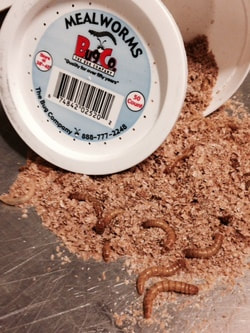
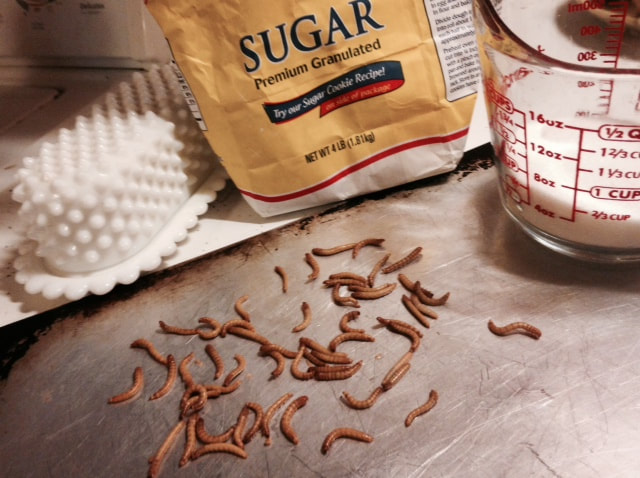


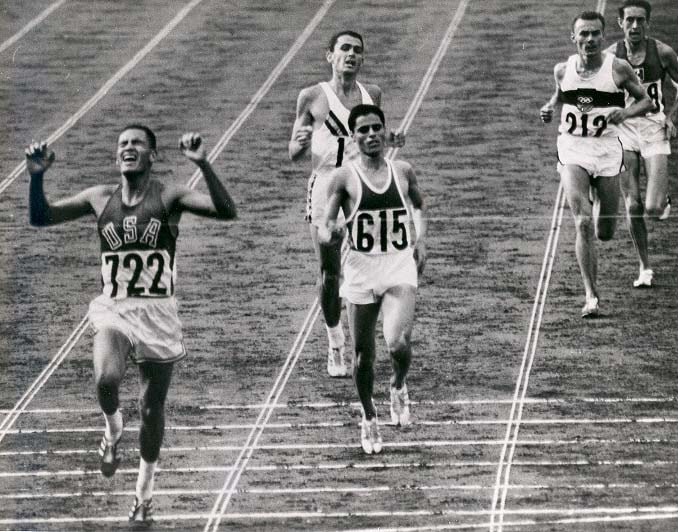


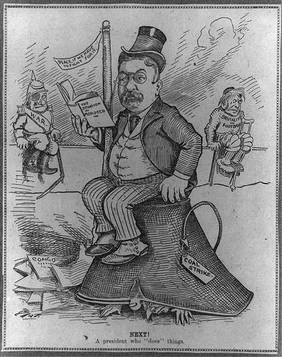


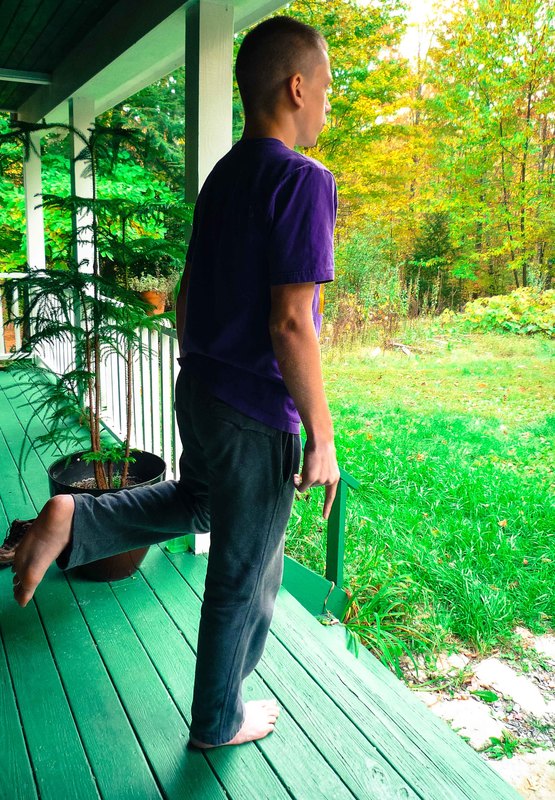

 RSS Feed
RSS Feed
